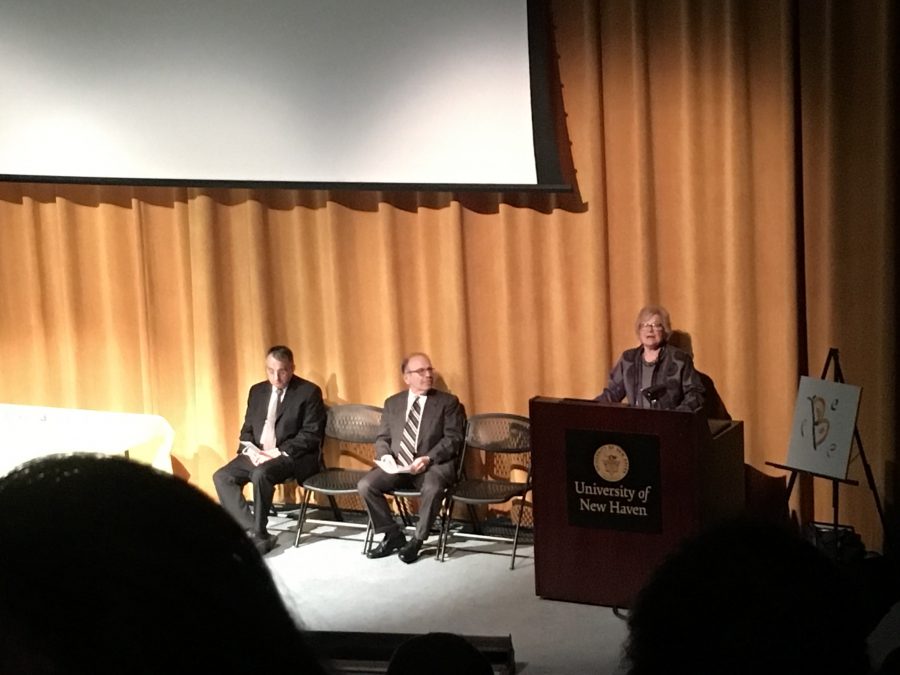From the Associated Press.
SEATTLE – Naveed Haq wasn’t insane — just angry — when he stormed a Seattle Jewish center in 2006, killing one woman and wounding five others as he railed against Israel and demanded to go on CNN, a prosecutor said Wednesday.
“He was tired that no one was listening to the Muslim point of view. He wanted that point of view heard,” King County deputy prosecutor Don Raz told jurors as Haq’s second trial opened Wednesday. “Naveed Haq’s press release found one woman dead, three women struggling for their lives, two women critically injured and a community struck to its core.”
Haq’s first trial ended last year with jurors deadlocked on whether he was legally insane during the shooting spree on July 28, 2006.
The second trial effectively determines whether the 34-year-old will spend the rest of his life in prison or in a state mental hospital, as his own lawyers have conceded he poses a danger to the public and should never be free.
Haq drove from his eastern Washington home to Seattle the day of the attack and forced a teenage girl at gunpoint to let him into the Jewish Federation of Greater Seattle. Once in the second-floor office, he opened fire, shooting some people in their cubicles, some in the hall and one, Pamela Waechter, fatally as she fled down a stairwell.
Raz acknowledged Haq’s history of mental illness, but focused his opening statement on Haq’s preparations in an effort to show that his mind was clear that day.
Haq made several trips to gun stores in the weeks prior to the attack, wrote two documents on his father’s computer criticizing Israel and U.S. policy in the Middle East and used MapQuest to find directions to the center from his family’s home in Pasco, 180 miles east of Seattle.
On his way to the Jewish center, he pulled off Interstate 5 and test-fired his gun, Raz said, and when pulled over for driving down a bus-only street in rush hour, he seemed normal to a police officer.
In a recorded phone conversation after the shooting, Raz said, Haq told his mother, “I did a very good thing. I did it for a good reason.”
She said, “I know you’re not well,” to which Haq replied: “Whatever, Mom.”
One of Haq’s lawyers, John Carpenter, argued that Haq could not perceive the quality of his actions, and that he believed he could change the course of wars by attacking the Jewish Federation.
“There could be no defense for this act if it was borne by an undiseased mind,” Carpenter said. “But it wasn’t.”
Carpenter described Haq’s condition as psychizoaffective disorder with bipolar tendencies and said his troubles became worse when he studied at the University of Pennsylvania. He said his client would hear voices that called him a “loser” and a “homo.”
Medication changes caused a serious deterioration of his mental state before the shooting, Carpenter said.
The shooting left one victim, Layla Bush, unable to walk. Carol Goldman has said she now volunteers atHarborview Medical Center, where the critically injured women were treated.
Then-pregnant Dayna Klein, who took a bullet in her arm as she protected her fetus, gave birth several months later to a healthy boy. On the day of the attack, she spoke to a 911 operator as Haq aimed his weapon at her.
Haq provided his name and social security number, ranted against Jews, asked to go on CNN, and suddenly said, “Here, I’ll give myself up. This was just to make a point.”
Another victim, Cheryl Stumbo, testified of how being shot felt like a punch. She fought back tears as she told of walking past Waechter’s body on a stairway landing as she left the building.
Richard Fruchter, the Jewish Federation’s president, attended the trial Wednesday and said he wanted to “ensure that Mr. Haq never again has the opportunity to cause such devastation in people’s lives and send a clear message that such acts of hate are not tolerated in our greater Seattle community.”
“Having to endure a second trial is an unfortunate reality, but we are committed to seeing this through,” he said.




